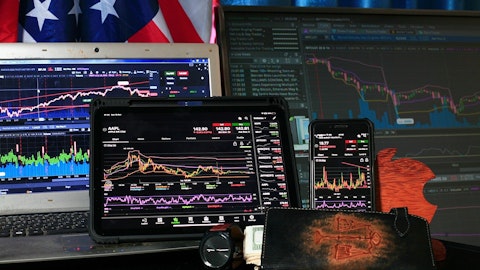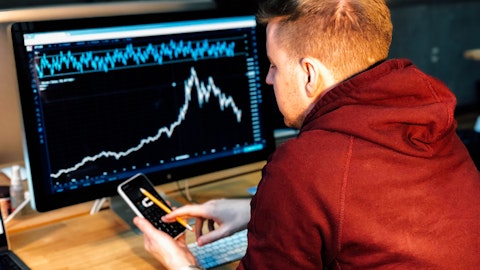Bonnie Herzog: All right. Thank you.
Emmanuel Babeau: Thank you.
Operator: Thank you. Our next question comes from Gaurav Jain with Barclays. Please go ahead.
Gaurav Jain: Hi, good morning.
Emmanuel Babeau: Good morning, Gaurav.
Gaurav Jain: So I have a question on the U.S. cigar side of things. So clearly, the FDA stand as rule-making process to ban flavored cigars to the [OMB] (ph). So first, how will you address that? And secondly, if I look at the reported numbers on cigars, it seems that the revenue had a pretty steep decline this quarter. Can you help us understand what’s happening there?
Emmanuel Babeau: So on the trend, we’ve been increasing price. I mean the cigar had been below a certain threshold for a period of time and we decided to move above this ratio, which was $1.14. And there is a time for adaptation and that explains why on volume we are impacted this year. But I don’t think it reflects what’s going to happen in the long term where we continue to have very good brands and with a lot of consumer support. Frankly, on the flavor, will you allow me not to speculate. I mean, I don’t know exactly what are the plans. What it’s going to mean, how long it would take, what is decided, and again, nobody actually knows what could be decided, how long it’s going to take to be implemented. So I’m not going to speculate at this stage on what would be our answer and what we would do because I’m not going to be relevant on anything that could be seen at that stage.
Gaurav Jain: Sure. Thank you. And then my second question is on FY 2024 EPS and what’s the base we should use to project that? Because I heard a comment that the Argentinian balance sheet revaluation impact, which is about $0.06 that will not recur in FY 2024. So we should add back to FY 2023 EPS? And then could you also just comment on Russia exposure and the [CLCPS] (ph)?
Emmanuel Babeau: Yes. So this is a technical comment on Argentina. Gaurav, you’re absolutely right. This is a ForEx impact that is a kind of one-off, if you want, because that is impacting this year but next year, we’re not starting with the base on our profit that is decreased by that. It’s just something that you need to book on your balance sheet exposure. But what is taken is taken. I mean, of course, depending on the evolution of the Argentinian peso in the future. But I don’t have anything to say at this stage. I think I just wanted to clarify this technical impact. On Russia, frankly, versus when we made three weeks ago, there is nothing new to report on the Russian situation. This is a market where, of course, we are being very significantly impacted on the profit reported in dollars because of the very strong weakening of the Russian ruble versus the dollar.
And that is one of the, if not, the biggest impact this year on ForEx. That is, of course, I would say, mechanically reducing our exposure to Russia in our profit. That’s mechanical. And we are — as we already said, we are seeing very limited growth in Russia, that is a market where as we’ve been saying, we’ve been reducing our commercial activity and [indiscernible] market where we’re investing and that is translating, of course, on the performance of this market.
Gaurav Jain: Thank you so much.
Emmanuel Babeau: Thank you, Gaurav.
Operator: Thank you. Our next question comes from Pamela Kaufman with Morgan Stanley. Please go ahead.
Pamela Kaufman: Hi, good morning.
Emmanuel Babeau: Hi, Pam. Good morning.
Pamela Kaufman: I have a question on the combustible business. It’s been exceeding expectations, and you’ve taken up your guidance for volumes on the combustible strength. Can you talk about what’s driving the performance in this category, despite the acceleration in pricing growth?





